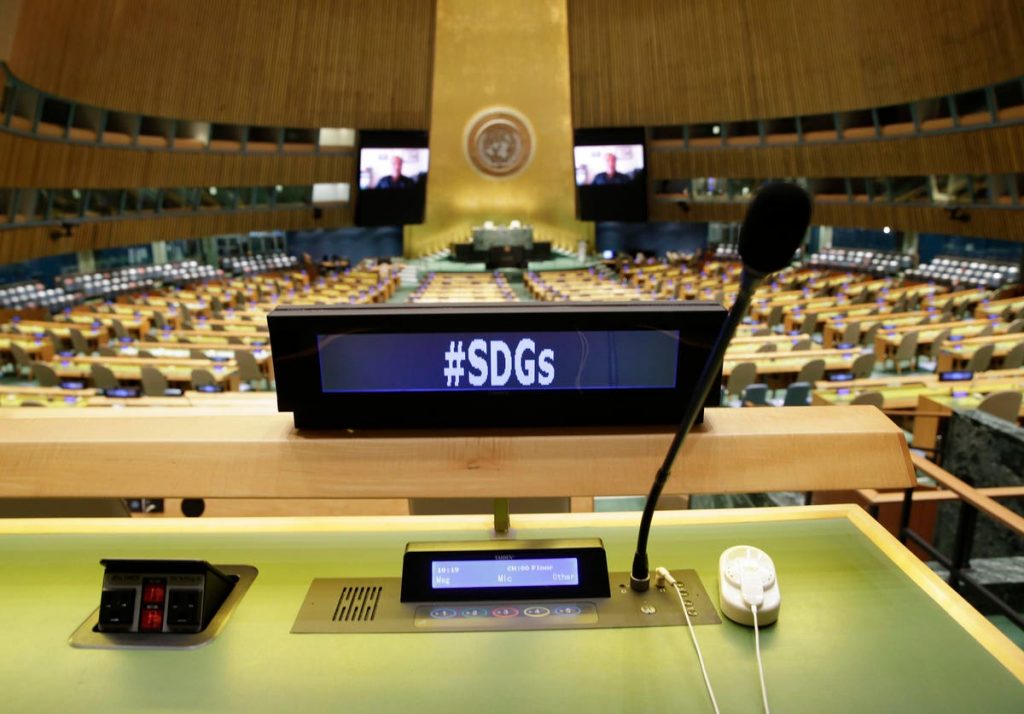
Empty desks fill the UN General Assembly Hall as speakers deliver remarks remotely at the SDG Moment … [+] event as part of the UN General Assembly 76th session General Debate at the United Nations Headquarters on Monday, September 20, 2021 in New York City. Sustainable Development Goals (SDG) are a blueprint for fighting poverty and hunger as well as confronting the climate crisis. AP Photo by John Angelillo/UPI, POOL)
Global insurers are abandoning the United Nations’ Net-Zero Insurance Alliance over ESG backlash and antitrust concerns. Of the eight original signers, five have left the alliance with more leaving daily.
In 2021, the UN formed the NZIA under the UN Environment Programme’s Principles for Sustainable Insurance Initiative as a way to encourage the insurance industry to take action on climate change. Members must sign the NZIA statement of commitment which is focused on obtaining net-zero greenhouse emissions by 2050 to contribute to towards the implementation of the COP21 Paris Agreement.
The NZIA statement not only forces insurers to change their internal practices to reduce carbon emissions, but to use their insurance portfolio to encourage businesses and other clients to implement net-zero actions. It is this part of the agreement which is most concerning to some antitrust legal experts. However, legal experts are split on the interpretation and NZIA has stated that all actions taken will be in conformity with antitrust laws.
Among other things, signers also pledge to support the implementation of corporate disclosures relating to climate change, like the Financial Stability Board’s Task Force on Climate-related Financial Disclosures (TCFD). TCFD was the model used by the European Union in the implementation of their reporting standards and is the framework the U.S. Securities and Exchange Commission is mimicking in their soon to be released climate disclosure rule.
While focused exclusively on greenhouse emissions and climate change actions by publicly traded companies, the climate disclosures are part of a broader debate relating to environmental, social, and governance. ESG is a type of financial investing where factors beyond strictly financial returns are considered.
ESG has faced significant political pushback in the United States over the past few months as the Republican controlled Congress attempted to reverse a Department of Labor ERISA rule on ESG, leading to President Joe Biden’s first veto. Republican controlled states are implementing anti-ESG legislation utilizing their legislative and budgeting authority to control what they can at the state level. There are also concerns that ESG factors in the insurance industry are driving higher costs.
This combination of factors has led to an exodus from NZIA. Munich Re, the world’s largest reinsurer, announced in March they were leaving the alliance out of anti-trust concerns. Zurich Insurance and Hanover Re followed suit in early April. French insurer AXA, reinsurer Scor, German insurer Allianz, and Japanese insurer Sompo Holdings announced on Thursday they were leaving the alliance. With at least nine members already exiting, nearly a third of the total membership has left, leaving only 20 members as of May 26.
The collapse of NZIA will not be the end of the discussion, as the broader UNEP FI Principles for Sustainable Insurance, which NZIA members must also sign, currently has 150 signors controlling $15 trillion in assets. PSI has been in effect since 2012 and continues to gain momentum. If the NZAI collapses, expect a new version to emerge.
Follow me on Twitter or LinkedIn. Check out my website or some of my other work here.
